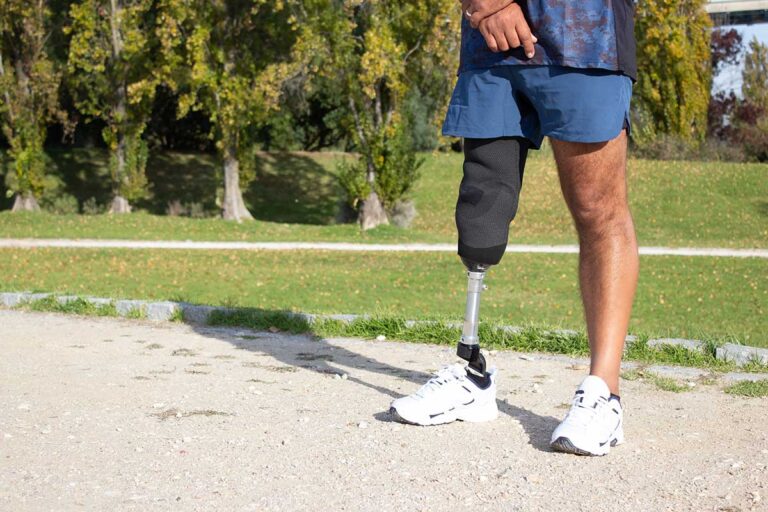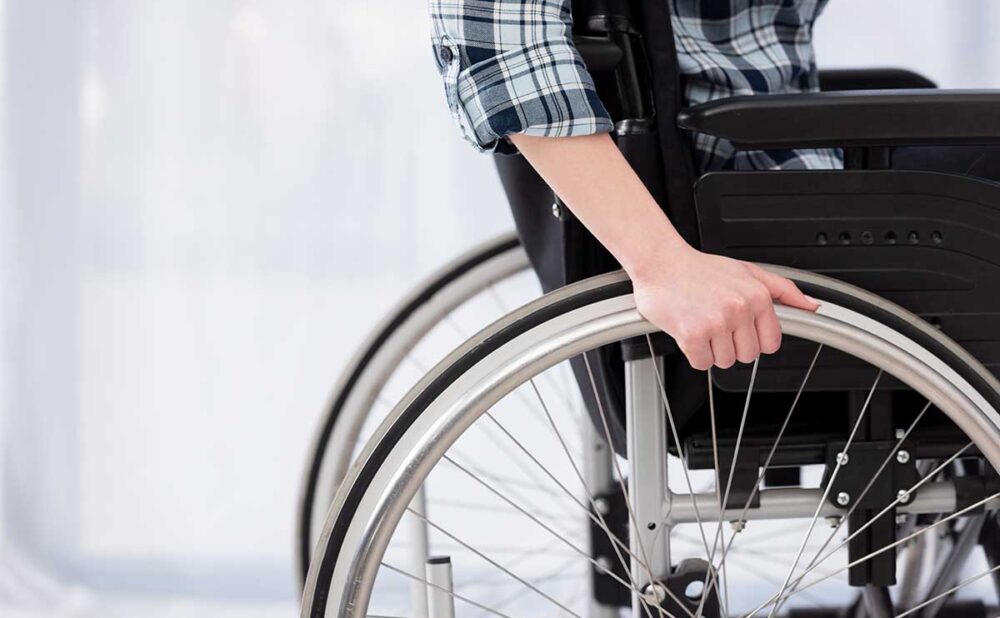Understanding Catastrophic Injuries in Georgia
Accidents can happen to anyone, at any time, and in any place. While some accidents may result in minor injuries that only require a short recovery period, others can cause catastrophic injuries that may have life-changing consequences. A catastrophic injury is severe and permanent, often leaving the victim with a long-term disability or impairment that can alter their quality of life dramatically. These injuries can affect not only the individual physically but also emotionally and financially, creating a ripple effect that impacts their family and loved ones.
An experienced South Atlanta personal injury lawyer understands the complexities involved when you and a loved one suffer such an injury due to someone else’s negligence. In this article, we will delve deeper into what qualifies as catastrophic injury from a legal perspective, providing essential insights for anyone navigating this challenging experience.
What is a Catastrophic Injury?
A catastrophic injury is characterized by its profound and long-lasting impact on the victim’s quality of life. Such injuries typically necessitate extensive medical treatment and often lead to permanent disabilities. The primary distinction between catastrophic injuries and other types of injuries lies in the severity and long-term consequences faced by the victim.
For example, while a fractured bone is undeniably painful, it typically heals within weeks or months. Conversely, spinal cord injuries may lead to permanent paralysis or chronic pain, demanding ongoing medical care throughout the victim’s lifetime.
Suffering From A Catastrophic Injury? Contact Us For A Free Consultation
Suffering From A Catastrophic Injury?

Importance in Personal Injury Law
Catastrophic injuries represent some of the most severe and life-altering consequences of accidents and negligence. These injuries not only affect the physical well-being of the victim but also have profound emotional, psychological, and financial implications for both the individual and their family. In the context of personal injury law, catastrophic injuries are those that lead to permanent impairment, significantly affecting a person’s ability to function in daily life or perform work-related tasks.
Understanding the nature of catastrophic injuries is crucial within the realm of personal injury law. Such injuries often require extensive medical treatment, ongoing rehabilitation, and long-term care, which can result in substantial medical expenses and lost wages. Consequently, the legal framework surrounding these injuries ensures that victims receive adequate compensation for their losses, accounting for current medical costs, future needs, and the overall impact on their quality of life.
Impact of Catastrophic Injuries
The consequences of a catastrophic injury are far-reaching, affecting every aspect of the victim’s life:
- Permanent Disability. Many catastrophic injuries result in permanent disabilities that require ongoing medical care and support. These may include severe brain damage, paralysis, or the need for prosthetics due to amputations.
- Loss of Income. Victims of catastrophic injuries often find themselves unable to work, leading to financial strain from lost wages.
- Emotional Distress. The trauma associated with catastrophic injuries can lead to severe emotional repercussions. Victims may experience anxiety, depression, or even post-traumatic stress disorder (PTSD) as they cope with their new realities.
- Decreased Quality of Life. Catastrophic injuries can drastically limit an individual’s ability to engage in activities they once enjoyed, leading to a sense of isolation and diminished overall happiness.
Overview of Georgia’s Legal Framework
Georgia’s legal framework for personal injury cases, including those involving catastrophic injuries, is based on state law and shaped by factors like negligence, liability, and damages. Georgia’s modified comparative negligence system reduces a victim’s compensation if they are found to share fault in an accident. It’s important to note that even if you are found to be partially at fault for your catastrophic injury, you are still entitled to some level of compensation.
Understanding this legal context is essential for grasping how catastrophic injuries are treated in personal injury cases. It affects both the victim’s ability to recover damages and the strategies employed by legal representatives to advocate for their clients. Here, we aim to shed light on the various types of catastrophic injuries, the legal implications surrounding them, and the processes involved in proving these cases in court.

Types of Catastrophic Injuries
Catastrophic injuries encompass a range of severe injuries that have a profound and lasting impact on an individual’s life. These injuries not only affect the victim physically but can also lead to significant emotional and financial burdens. In Georgia, understanding the types of catastrophic injuries is crucial for victims seeking compensation through personal injury cases. Common examples of catastrophic injuries include:
Traumatic Brain Injuries (TBI)
Traumatic Brain Injuries (TBI) can lead to lasting repercussions on a person’s life. TBIs occur following a sudden jolt or blow to the head, resulting in damage to the brain. Symptoms can vary widely, including confusion, memory loss, headaches, and difficulties in communication and coordination. TBIs often result from sudden trauma to the head, which can occur in various accident scenarios, including motor vehicle collisions, falls, or sports-related incidents. In Georgia, common causes include reckless driving, workplace accidents, and inadequate safety measures in recreational activities.
The repercussions of a TBI can be devastating and long-lasting. Victims may experience cognitive impairments, mood swings, and physical disabilities. The severity of these effects can vary greatly depending on the injury’s location and extent, often requiring ongoing medical treatment and rehabilitation.
In personal injury cases involving TBI, establishing liability is critical. Victims must demonstrate that negligence on the part of another party contributed to the accident. Additionally, they must provide evidence of the injury’s impact on their daily life, which may include lost wages, medical expenses, and diminished quality of life. In personal injury cases involving TBI in Georgia, it is crucial to seek legal representation from an experienced South Atlanta personal injury lawyer who understands how traumatic brain injuries affect individuals’ lives.
Spinal Cord Injuries (SCI)
Spinal cord injuries (SCI) are among the most severe forms of catastrophic injuries. Damage to the spinal cord disrupts communication between the brain and the body, demanding extensive medical treatment and ongoing rehabilitation, which can be financially burdensome. SCI can result from various types of accidents, including vehicle crashes, falls, and acts of violence. These injuries can disrupt communication between the brain and the rest of the body, leading to paralysis or loss of sensation.
The consequences of an SCI can be life-altering. Victims may face challenges in mobility, requiring the use of wheelchairs or other assistive devices. Victims may need long-term care such as physical therapy, occupational therapy, speech therapy, and psychological counseling, which can strain both the individual and their families financially and emotionally. The emotional and psychological toll of losing independence and experiencing chronic pain can significantly affect the victim’s overall well-being.
In Georgia, compensation for SCI cases often involves substantial medical expenses, rehabilitation costs, and considerations for future care needs. Victims may also seek damages for pain and suffering, loss of enjoyment of life, and the emotional impact on their families.
Severe Burns and Disfigurement
Severe burn injuries stand out as one of the most devastating and painful types of catastrophic injuries that a person may endure. Burns can result in permanent scarring, infections, and significant emotional distress. Severe burns can occur from various incidents, including fires, chemical exposures, and electrical accidents. In personal injury cases, negligence in safety protocols or product liability may contribute to these devastating injuries.
Beyond the physical injuries, severe burns often lead to disfigurement, which can have profound psychological effects. Victims may struggle with self-esteem issues, social anxiety, and depression due to their altered appearance. The healing process can be lengthy and painful, requiring extensive medical intervention.
Victims often struggle with the long-term consequences of their injuries. Extensive emotional trauma often accompanies the physical pain. These consequences can encompass significant medical expenses, rehabilitation costs, and even the need for psychological support to cope with the trauma and changes to one’s body image.
Victims of severe burns frequently require comprehensive medical treatment, which may include skin grafts, reconstructive surgeries, and ongoing therapies to manage pain and rehabilitate damaged areas. Additionally, many burn survivors deal with scarring and disfigurement, which can lead to severe emotional distress, including depression and post-traumatic stress disorder (PTSD). The journey to recovery is often lengthy and fraught with challenges, necessitating a strong support system and, in many cases, legal assistance.
In pursuing legal action for burn injuries, plaintiffs must establish the circumstances that led to their injuries. This may involve demonstrating negligence on the part of another party, such as a property owner failing to maintain safe conditions or a manufacturer producing defective products. Compensation can cover medical expenses, rehabilitation, and psychological counseling.

Limb Amputation
Limb amputation is a catastrophic injury that can result from a variety of accidents, including car accidents, workplace accidents, and medical malpractice. Losing an arm or leg can have devastating physical and emotional consequences for the victim. In addition to the initial trauma of the amputation itself, victims may experience a host of negative symptoms, such as:
- Chronic pain
- Phantom limb sensations
- Challenges adjusting to prosthetic devices
They also face significant financial challenges due to medical bills, lost income, and the extensive rehabilitation often required for recovery.
Blindness and/or Deafness
Experts recognize blindness and/or deafness as catastrophic injuries due to their profound effects on an individual’s quality of life. The loss of sight or hearing not only hampers one’s ability to perform daily activities—such as reading, driving, or engaging in conversations—but also poses significant barriers to employment, social interactions, and overall independence. These sensory impairments can lead to feelings of isolation and frustration, further complicating the victim’s emotional well-being.
Internal Organ Damage
Injuries to vital organs may necessitate complicated surgeries and long-term medical care.
Understanding the types of catastrophic injuries helps victims recognize their rights and the potential for compensation. As each case is unique, it is essential for individuals to consult with experienced legal professionals who can guide them through the complexities of personal injury law in Georgia.
If you or a loved one has suffered due to someone else’s negligence or wrongful actions, it is critical to seek legal counsel from an experienced Georgia personal injury lawyer. The Jewkes Firm will determine liability for your injuries, advocate for fair compensation, and help you navigate the complexities of a personal injury claim, ensuring that you receive the support needed for your recovery and future well-being.
Need a Free Consultation? Need a Skilled Attorney?
Free Consultation
Call (770) 771-5130
If you’ve been injured, you need to hire the best legal care to assist you with your claim. Get a FREE consultation today!
Proving Catastrophic Injuries in Court
Proving catastrophic injuries in court is a complex and multifaceted process that requires a thorough understanding of both medical evidence and legal principles. The burden of proof lies with the plaintiff, who must demonstrate not only the existence of the catastrophic injury but also its direct connection to the defendant’s actions. This section outlines the essential components involved in effectively proving catastrophic injuries in a personal injury case.
Gathering Medical Evidence
The foundation of any personal injury case involving catastrophic injuries is robust medical evidence. This includes comprehensive medical records, diagnostic imaging (such as MRIs or CT scans), treatment plans, and any documentation relating to rehabilitation or ongoing care. It’s crucial for plaintiffs to work closely with healthcare professionals to compile a complete medical history that clearly illustrates the extent and severity of the injuries sustained.
In cases of traumatic brain injuries or spinal cord injuries, specific medical assessments and evaluations can provide critical insights into how these injuries impact the individual’s daily life. Gathering this evidence often involves collaborating with specialists who can offer detailed reports on the injury’s nature and its long-term implications. Such evidence not only supports the claim but also aids in quantifying damages, which is vital for a successful outcome in court.
Expert Testimony and Its Importance
In catastrophic injury cases, expert testimony plays a pivotal role in conveying the complexities of the injuries to the court. Medical experts, such as neurologists, orthopedic surgeons, and psychologists, can provide authoritative insights into the nature of the injuries and their repercussions on the victim’s life. Their testimony can help clarify medical terminology and concepts for the judge and jury, making it easier for them to understand the severity of the injuries. By illustrating the full impact of the catastrophic injury, expert testimony can significantly influence the jury’s perception and the overall outcome of the case.
Establishing the Link Between Injury and Accident
Effectively proving catastrophic injuries in court demands meticulous preparation and a strategic approach. To succeed in a personal injury case involving catastrophic injuries, plaintiffs must establish a clear and direct link between the injury and the accident caused by the defendant’s negligence. Proving this causal relationship is often the most challenging aspect. Plaintiffs must demonstrate that the injuries sustained were a foreseeable result of the defendant’s actions and that no intervening factors contributed to the injuries.
This may require a detailed reconstruction of the accident, supported by eyewitness accounts, accident reports, and expert analysis. In some cases, accident recreation specialists can provide visual evidence or simulations that clarify how the events unfolded and how the injuries occurred. Establishing this causal connection is essential for proving liability and securing appropriate compensation for the victim.
The Importance of Understanding Catastrophic Injuries
Georgia’s legal system provides recourse for victims of catastrophic injuries caused by the negligence of others. Familiarity with the types of injuries and the necessary legal processes can enhance the chances of achieving a favorable outcome in court. By recognizing the complexities and severe implications of catastrophic injuries, we can foster a more empathetic and informed approach to personal injury cases in Georgia.

GEORGIA PERSONAL INJURY LAWYER NEAR ME
Choosing the Right Injury Attorney for Catastrophic Injuries in Georgia
In personal injury cases related to catastrophic injuries, the damages awarded can vary widely. Factors such as the severity of the impairment, the age of the victim, and the impact on their ability to work are all taken into consideration. An experienced Atlanta personal injury lawyer can provide invaluable assistance in navigating the complexities of a personal injury claim, ensuring that victims receive fair compensation that reflects not only their current challenges but also any long-term implications of their condition.
At The Jewkes Law Firm, we understand the unique challenges faced by individuals with catastrophic injuries. If you or someone you know has sustained a catastrophic injury due to the negligence or reckless behavior of another party, we encourage you to schedule a free case review as soon as possible to discuss your situation and begin the process of seeking the justice you deserve. Your recovery is our priority, and we are here to guide you every step of the way.





